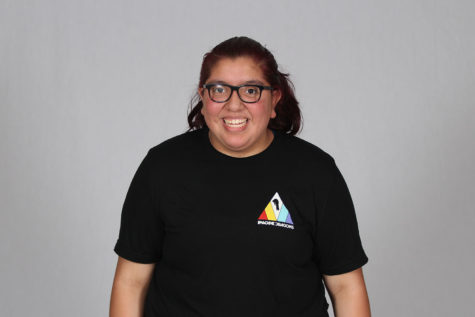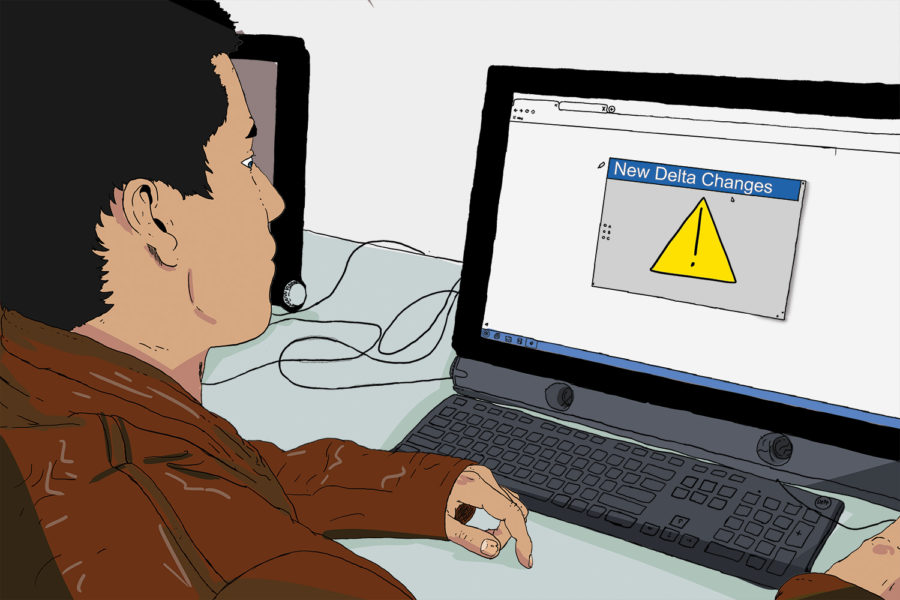Changes in DELTA program could limit access to credit recovery
Lifeline. This is the word that is often used to describe the Diversified Education through Leadership, Technology, and Academics program, better known as DELTA.
This program is designed for students who are behind in their high school credits for various reasons, such as failing a class or loss of credit due to poor attendance. is program is an on-campus, computer-based class that allows students to make up coursework at-your-own-pace format.
For some students, especially seniors who are short on credits to graduate, DELTA has been their best option to make up the required credits to earn their diploma. In the past, students have been allowed to take many computer-based classes at the same time.
However, the school district is proposing changes to DELTA that could have a negative impact on future students. Of particular concern is a requirement in which DELTA students will be limited to working on one course at a time. Another concern is that going forward there will only be one DELTA teacher in the classroom which typically would have two or three sta ers to help students who take ranges of classes, including English, social studies, math, and science.
I believe these new requirements are bad ideas that could bring negative effects on students.
DELTA is the last resort to the seniors trying to gain back the credits they lost. As a senior myself in the DELTA program just this semester I’ve completed ve courses and have three more to take. e great thing about how DELTA works is that one can work at their own pace but the courses do have a time limit.
Jesus Medel, who is classified as a freshman based on earned credits is supposed to be a junior, is currently assigned DELTA for all of his classes except for physical education, which he takes in the gym.
Medel said he appreciates how the program has helped him earn back many credits quickly in a single semester.
“I have completed 10 courses out of 13. Next semester I should be able to go back to classes as a sophomore and not be in DELTA anymore,” Medel said.
Twilight is another program that helps students earn back lost credits.
Melinda Van Horn, academic counselor for the Academy of Business, Leadership, and Legal Enterprises (ABLLE) said it is another good option for students who need to make up credits and can stay after school to do the online classes on a computer.
A new option is Garza High School Online courses.
The difference between Garza online courses and DELTA or Twilight is that Garza courses are done completely independently at home. No one is monitoring students’ progress. Another downside of Garza online courses is that it doesn’t offer as much variety of courses as DELTA or Twilight.
Currently, 180 students are enrolled in DELTA courses at Akins. Typically, there are two or three teachers in the room helping students unlock their tests so they can take them again if they fail or helping students review the items they miss on their assessments. On average, the class has 20 or more students at any given time.
Just from a classroom management perspective, I think it is a bad idea to have only one teacher overseeing the DELTA class at Akins because it would put too much stress on a single teacher to help students unlock tests, assist students and make sure the rest of the students are not getting to the task.
I believe the school district is pushing the online Garza classes as a way to eliminate teaching positions at Akins to lower costs instead of helping students who are in the most need.
The online Garza classes might be a good option for students who are highly motivated and disciplined to finish coursework independently. But let’s face it, most of the students in DELTA are in there because they struggle academically. Reducing staff to save money is not in the best interest of students especially those who are trying to do better in school.
Your donation will support the student journalists of Akins High School. Your contribution will allow us to purchase equipment and cover our annual website hosting costs.

Grade: 12
Academy: New Tech
Year on Staff: 3rd
Title: Staff Writer
Why are they on staff?: I like to write and I am very opinionated
What do you do for fun?: I like to play the violin or listen to music
Plans for after high school?: attend ACC then Texas State for engineering and technology a with minor in music



